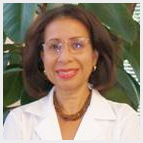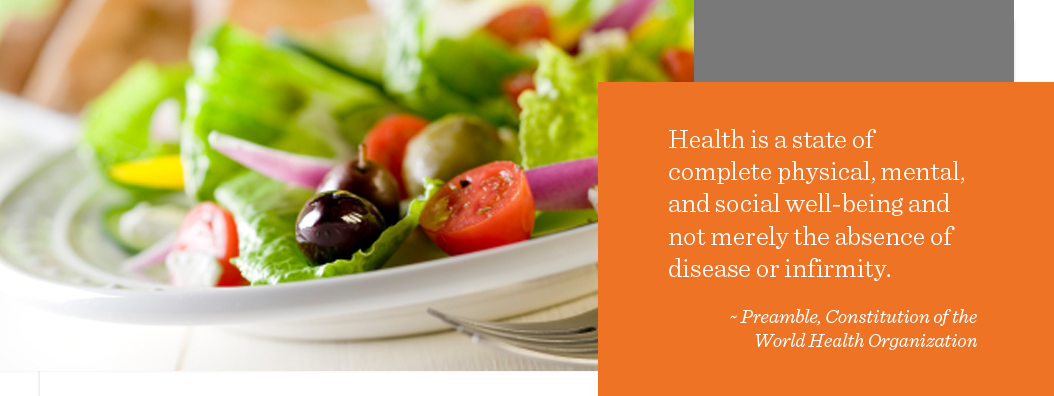Our New Patient Registration and Medical History forms are avaible on one PDF file for your convenience.

 My interest in health and lifestyle began in high school as an overweight teenager with acne, allergies, and chronic nasal congestion. I noticed that certain foods relieved my nasal congestion while others made it worse. I read everything I could about food and disease, when I read Food is Your Best Medicine by Henry Bieler, MD, I wanted to become a nutritionist. This all changed when I took my first nutrition course in college. The nutrition professor was obese, her teaching materials were mostly food industry handouts and she made statements such as "there is no reason why newborn babies can't eat bacon." The four food group belief system was taught and I tried to eat this way but it made my acne and allergies worse. I began to experiment with different ways of eating and eliminating certain foods. When I eliminated dairy products I noticed that my allergies and nasal congestion completely resolved and they returned when I ate dairy again. Clearly there was something wrong with the belief that dairy was essential for health, because it made me sick. This got me thinking that our beliefs about food may not actually be promoting good health.
My interest in health and lifestyle began in high school as an overweight teenager with acne, allergies, and chronic nasal congestion. I noticed that certain foods relieved my nasal congestion while others made it worse. I read everything I could about food and disease, when I read Food is Your Best Medicine by Henry Bieler, MD, I wanted to become a nutritionist. This all changed when I took my first nutrition course in college. The nutrition professor was obese, her teaching materials were mostly food industry handouts and she made statements such as "there is no reason why newborn babies can't eat bacon." The four food group belief system was taught and I tried to eat this way but it made my acne and allergies worse. I began to experiment with different ways of eating and eliminating certain foods. When I eliminated dairy products I noticed that my allergies and nasal congestion completely resolved and they returned when I ate dairy again. Clearly there was something wrong with the belief that dairy was essential for health, because it made me sick. This got me thinking that our beliefs about food may not actually be promoting good health.
I studied biology instead of nutrition and became a secondary education teacher. I taught science but occasionally I was asked to teach related subjects when there was a shortage of teachers. One semester I was asked to teach a home economics/nutrition course. This forced me to learn as much about nutrition and food science as I could to hold the interest of the high school students and answer their questions. In retrospect it was divine guidance because that summer I won a full scholarship to attend St. Georges University School of Medicine. The focus was the same as all medical schools, disease management with pharmaceutical drugs. There was one nutrition course which was similar to the course in college except for a few absolutely brilliant guest lecturers. I remember one lecturer who discussed his research on the protective association between breastfeeding and Multiple Sclerosis. Another guest lecturer discussed studies that showed higher rates of heart disease, diabetes and cancer in populations that ate the most meat and animal fat. I was fascinated by this and read as much as I could about the connection between food and disease. I had already eliminated dairy with good results so I stopped eating meat and felt even better, but still occasionally ate chicken and fish.
During my Internal Medicine residency I spent long hours in the hospital caring for sick and dying patients. It troubled to think that most of the suffering I saw could have been prevented if people simply made better food choices. In 1986 very few health professionals were making those food choices themselves, much less telling their patients to make them. I decided to switch to a Public Health/Preventive Medicine Residency Program because I thought it was about disease prevention and I could make a greater contribution.
I loved Public Health, it is not generally appreciated but the control of communicable diseases by measures such as clean food, clean water, sanitation and hand washing is the health success story of the 20th century. Preventive Medicine for the control of chronic, non-communicable diseases was a different story. My experiences in Preventive Medicine were similar to my first nutrition class. So, it was with great excitement that I read the Dean Ornish et. al. landmark study in 1990 which showed that heart disease, the most common cause of preventable deaths worldwide, could be prevented and reversed with a plant-based diet and other lifestyle changes.[1] This inspired me to completely eliminate all animal products from my diet and I felt healthier and more energetic than I ever had before. I thought that study would revolutionize Preventive Medicine but I forgot my Public Health history. It had taken the medical profession over 60 years and countless deaths before they accepted that hand washing could prevent disease, how long and how many unnecessary deaths would it take before a plant-based diet was accepted?
After completing my Public Health/Preventive Medicine residency I served as the Medical Officer of Health for the Government of Grenada. I enjoyed the Public Health part of my work and whenever possible I educated the public about disease prevention through lifestyle changes. I returned to the United States and worked with Morehouse School of Medicine, the Fulton County Health Department and Grady Health System to integrate clinical services into a Public Health clinic. It was rewarding to establish the clinic but frustrating because the clinic staff was just as obese and unhealthy as the patients. I was ready for a change when I was accepted into the Occupational Medicine Residency Program at Emory University. I saw Occupational Health as being similar to Public Health; one promoted the primary prevention of diseases in communities and the other promoted the primary prevention of injuries and illness in the workplace.
I practiced occupational medicine for nine years and became increasingly interested in the impact of a personal health on workplace injuries and illnesses. When a healthy worker of normal weight breaks a leg, he needs a pair of crutches and the bone usually heals in a few weeks. When an obese worker with diabetes breaks a leg, he needs a wheelchair, the bone takes longer to heal and there are more likely to be complications from infection. This increases the employer's costs but worse it causes unnecessary suffering and lost wages for the worker. Worksite wellness programs address these issues but most programs are not effective because they focus on exercise and conventional nutrition advice that does not prevent or reverse disease. I did fitness for duty physical exams and was surprised by the number of obese examinees who would tell me that they believed their high blood pressure, diabetes or other lifestyle disease was genetic and there was nothing they could do about it except take medications. Genetics play a role but it is a minor role compared to lifestyle. My family's health experiences are a good example of the genetics/lifestyle balance.
My father had high blood pressure and died of cancer; my mother takes two medications to control her blood pressure; my oldest brother had high blood pressure and died of a heart attack at age 49; my middle brother has high blood pressure and has had a heart attack and several stents that have reclogged; and my youngest brother has high blood pressure and had a stroke at age 48. I have no medical problems, at my last doctor's visit my blood pressure was 110/70 with no medications. We all have the same genes; the only difference is lifestyle, I don't eat animal products and I limit processed foods such as oils. When my youngest brother had his stroke in September 2009 I went to the hospital every day and was disappointed by the food that was served to stroke patients, people who already had clogged arteries. Nineteen years after solid scientific evidence showed that arterial blockages could be reversed with a plant based diet, hospital food had not changed. I met a young dietitian in training who told me that promoting plant-based eating to reverse disease was not taught in Nutrition Programs. She did a survey of her nutrition class and reported back that some of her classmates were interested but none of them had any personal experience with plant-based eating. I walked around the hospital and had the same feelings that I had as a medical resident 24 years before, the same frustration and sadness that most of the suffering and pain that I saw were completely preventable.
I decided then that I would stop complaining and follow the advice of Mahatma Gandhi to "be the change that you want to see in the world." The timing was right; in July 2009 the American College of Preventive Medicine launched a Lifestyle Medicine Initiative which was not comprehensive but it was good start. In the same month the American Dietetic Association issued a position paper stating that "appropriately planned vegetarian diets, including total vegetarian or vegan diets are healthful, nutritionally adequate and may provide health benefits in the prevention and treatment of certain diseases." The new health insurance reform law also required insurance plans to pay for certain preventive health services.
I decided to start a practice in Lifestyle Medicine to give patients the advice that they were not getting from other doctors and desperately needed. It felt like divine guidance when I got an almost ideal space in Midtown Atlanta to start the practice. The clinic offers a lifestyle intervention programs that include plant-based meal plans, stress management, fitness assessments, exercise prescriptions and compassionate communication skills training. Every doctor understands the importance of lifestyle factors in disease prevention and treatment. Employers understand the impact that their employee's lifestyles have on workplace safety and business costs. Atlanta Lifestyle Medical Center offers unique services to prevent and reverse the chronic lifestyle diseases that cause the most suffering in our population today.
[1] Ornish D, et al. 1990. Can lifestyle changes reverse coronary heart disease? The Lifestyle Heart Trial. Lancet 336(8708):129-3
